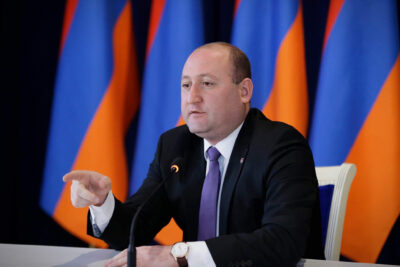By Edmond Y. Azadian
While the US news media is lulling the public with a profusion of coverage in the case of sexual abuse by assistant football coach of Pennsylvania State University, Jerry Sandusky, another blood bath is in the making in the Middle East.
An artificial crisis has been concocted to topple the government in Syria. Recently, the US ambassador to Syria, Robert Ford, visited Detroit, a major hub of the Arab community in the US, to give an overview of the American government policy regarding the Syrian crisis. He outlined the US goals under the following four points: 1) stop the violence; 2) start political transition; 3) produce a representative government with respect for human rights and 4) make sure the Assad family leaves. “We are preparing a war crimes trial,” he said.
What is the guilt of the Syrian government or, for that matter, its president, Bashar al-Assad?
Syria is one of the last bastions of Palestinian support, as Libya and Iraq are now out of the equation in supporting the rights of the Palestinian people.
The other fault that the Syrian government has is its legitimate demand for a portion of its sovereign territory, namely the Golan Heights, which was occupied and annexed by Israel. Those who are planning to topple the Syrian government overlook these issues while shedding crocodile tears for the lack of human rights of the Syrian people. Turkey has no better record on human rights as the slaughter of Kurds continues, but selective justice is the order of the day in world politics.









